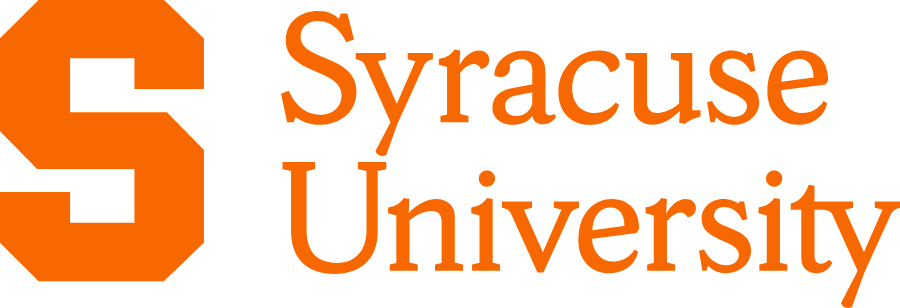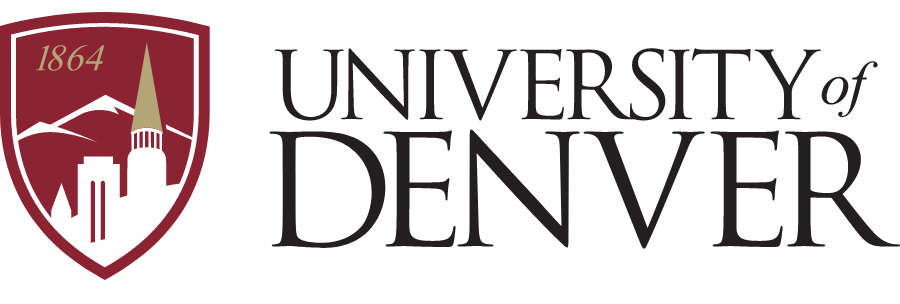Librarianship is a career that has the ability to touch all people – from infants to seniors, everyone has an opportunity to find what they need or use services provided at the library. This is why having trained professional librarians staffing libraries of all types is so important. When libraries have trained, knowledgeable librarians staffing their various departments and facilities, they know they are providing their communities with the best literacy, reference, and information services possible.
Across America, all states have specific expectations and requirements for prospective librarians to meet before they can officially enter and serve in the field successfully. Tennessee is no different. Whether a person is interested in public, K-12 school, or academic librarianship, Tennessee upholds specific expectations and requirements for its future librarians to meet to ensure they are well-qualified to perform the librarian’s job.
ADVERTISEMENT
Syracuse University
Master of Science in Library and Information Science Online
Syracuse University offers an online MS in Library and Information Science. The program can be completed in 18 months and includes the option to specialize in School Media or customize the program to align with your professional goals. No GRE is required.*
University of Denver
Master of Library and Information Science Online
University of Denver’s Morgridge College of Education offers an online, ALA-accredited Master of Library and Information Science program. Learn from practitioners and gain the service-based skills needed to connect communities with information in the digital age. No GRE is required.*
St. John’s University
Online Master of Science in Library and Information Science
Gain the advanced expertise that information specialist positions require with the online M.S. in Library and Information Science program from St. John’s University. Achieve your career goal by selecting from one of the following specializations:
Arizona State University
M.Ed in Learning Design and Technologies
Create literacy programs and curricula that fully incorporate digital technology and include themes of social justice.
How to Become a Public Librarian in Tennessee
In the 2022 fiscal year, the Tennessee State Library reported having 192 public library facilities across the state. Those 192 facilities reported some impressive statewide usage statistics, including…
- Over 9,500,000 library visits recorded
- Over 2,100,000 reference questions answered
- Over 24,000,000 items circulated
- Over 950,000 program attendees
Tennessee public libraries are busy places offering a wide variety of services to children, teenagers, and adults alike. In order to keep up with the hustle and bustle of these facilities, prospective public librarians in the state of Tennessee must be properly trained to be qualified to serve in these positions.
To become a public service librarian in Tennessee, a person would need to…
1. Complete a bachelor’s degree in any subject area.
Some people like to complete their bachelor’s degree in Library and Information Science before entering professional library work, but this isn’t a firm requirement. People tend to enter librarianship from a variety of educational backgrounds and experiences. For example, a group of professional librarians might have previous educational training as teachers, medical professionals, or scientists, just to name a few – librarians tend to be a robustly educated group with a lot of experience in their back pockets. It is unusual for a library to require a bachelor’s degree in Library and Information Science in order to work as a professional librarian. Typically, these facilities want to see a completed bachelor’s degree in any subject area in good standing.
2. Complete a Master of Library and Information Science (MLIS) program.
While undergraduate degree requirements aren’t so strict, this portion of educational requirements for prospective Tennessee public librarians is. To become a full-fledged public services librarian in the state of Tennessee, a prospective candidate must complete an MLIS degree.
Like many other states, Tennessee public libraries tend to have a preference for American Library Association (ALA)-accredited degrees, but this is not always listed as a firm requirement. Before selecting an MLIS program, research hiring preferences and requirements of systems that you are interested in potentially working for upon graduation. Some public library systems merely prefer an ALA-accredited MLIS degree, while others firmly require it to be considered a fully qualified candidate.
3. Complete continuing education as required.
Tennessee requires its public librarians to earn at least one continuing education credit each year. Librarians serving at the director level must earn a minimum of four continuing education credits per year. Continuing education courses and seminars give librarians opportunities to stay abreast of current trends and topics in the information science sphere, making them more well-rounded and prepared to serve the public.
How to Become a K-12 School Librarian in Tennessee
School libraries often serve as the “hubs” of their campuses. Everyone – from the students, to the teachers, to the other faculty working throughout the school – visit or use the K-12 school library for something. Whether they are learning, engaging in a co-teaching opportunity, borrowing books, using computers, enjoying STEAM (science, technology, engineering, art, or math) enrichment, or developing literacy skills, teachers and students alike all benefit from a robust school library program. At the center of every good, strong school library program is a qualified and trained K-12 school librarian.
Like other states across America, Tennessee holds specific requirements for prospective K-12 school librarians to meet in order to be fully qualified to work in this role.
1. Complete a bachelor of arts degree – preferably in education.
Like in other states, Tennessee’s school librarians often complete their undergraduate education in the education field. At the end of this degree program, they often obtain their teaching certification or license as a culmination of the program.
It is important to remember that school librarians are also teachers. They often lead their own classes or co-teach with other teachers throughout the school. Because of this major part of their role in the school’s culture, they must hold a valid teaching certification.
If you did not study education during your undergraduate education, don’t panic – many MLIS programs geared toward K-12 school librarianship have dual programs that can help master’s program students also complete the requirements needed for their teaching certifications, too. Whether you have undergraduate experience in education or not, you can still follow through your MLIS journey to become a K-12 school librarian.
2. Complete an MLIS program geared toward K-12 school librarianship.
MLIS program offerings are a bit like visiting an ice cream shop – even within the same Library and Information Science department, you will discover that there are many different concentrations you can choose for your own MLIS degree. One of those many “flavors” is K-12 school librarianship.
MLIS programs often branch off into concentrations that prepare their graduates to successfully work in public service, K-12 schools, colleges, museums, special collections, and beyond.
Prospective K-12 school librarians in Tennessee will need to choose an MLIS program that offers a K-12 school librarianship focus. These programs are specially designed to ensure the school librarian candidate graduates from the program with everything necessary to qualify and succeed at K-12 school librarian work.
3. Complete the proper licensing requirements set forth by the Tennessee Department of Education.
Like many other states, Tennessee requires its school employees – particularly teachers and other faculty working within school facilities – to obtain proper certification for their areas of expertise. For prospective K-12 school librarians, this is a media specialist endorsement, which is added to a teaching license.
In Tennessee, prospective K-12 school librarians need to meet the requirements of a teaching license and also pass the Praxis exam #5312 for school librarians. Licensing exams such as the Praxis #5312 are tests that examine a prospective teacher’s knowledge of their specific content areas. An MLIS program geared toward K-12 school librarianship will properly prepare a school librarian candidate to pass the exam and meet this specific requirement for licensing – typically, these tests are taken during the final semester of (or shortly after completing) an MLIS program.
ADVERTISEMENT
Syracuse University
Master of Science in Library and Information Science Online
Syracuse University offers an online MS in Library and Information Science. The program can be completed in 18 months and includes the option to specialize in School Media or customize the program to align with your professional goals. No GRE is required.*
University of Denver
Master of Library and Information Science Online
University of Denver’s Morgridge College of Education offers an online, ALA-accredited Master of Library and Information Science program. Learn from practitioners and gain the service-based skills needed to connect communities with information in the digital age. No GRE is required.*
St. John’s University
Online Master of Science in Library and Information Science
Gain the advanced expertise that information specialist positions require with the online M.S. in Library and Information Science program from St. John’s University. Achieve your career goal by selecting from one of the following specializations:
Arizona State University
M.Ed in Learning Design and Technologies
Create literacy programs and curricula that fully incorporate digital technology and include themes of social justice.
How to Become an Academic Librarian in Tennessee
College campuses everywhere depend on their academic librarians. Large and small campuses alike often have one (or more!) academic libraries serving their various academic communities, helping students and faculty alike connect with the information they need to complete research, finish assignments, and more.
In Tennessee, the requirements for becoming an academic librarian are quite similar to those featured in other states.
1. Earn a bachelor’s degree in any subject area.
Similarly to public librarianship, prospective academic librarians can enter an MLIS program with all sorts of undergraduate backgrounds. It isn’t unusual to meet academic librarians with a huge array of educational experiences – this makes them more attuned to various subjects and academic needs.
2. Earn an MLIS degree.
Specific colleges and universities may require an ALA-accredited degree, but this isn’t always the case. Before committing to a specific MLIS program, do some research by checking into different college and university hiring preferences – this can help you determine whether or not selecting an ALA-accredited MLIS program should be one of your top priorities when choosing a school for your master’s degree.
3. Earn any additional degrees that may be required.
During your hiring research, notice if the colleges and universities prefer their academic librarians to hold other advanced or additional degrees. This isn’t always a firm requirement, but it may be a preference of certain schools when they hire academic librarians. This is because academic libraries often have departments within them that are designed to support specific academic programs offered on campus – for example, a college with a robust music program may have an entire music library to support this subgroup of students and faculty, so a librarian who also has music education and experience would make them better attuned to anticipate their research questions and needs.
4. Seek postsecondary licensure from the Tennessee Department of Education, if necessary.
The Tennessee Department of Education offers educator’s licenses for people serving in college or university-level teaching roles. Similarly to K-12 school librarians, academic librarians are often instructors themselves – they may be leading technology and research courses, among other offerings at their college or university. If a college or university requires its academic librarians to seek this licensure, a prospective academic librarian would need to obtain it.




